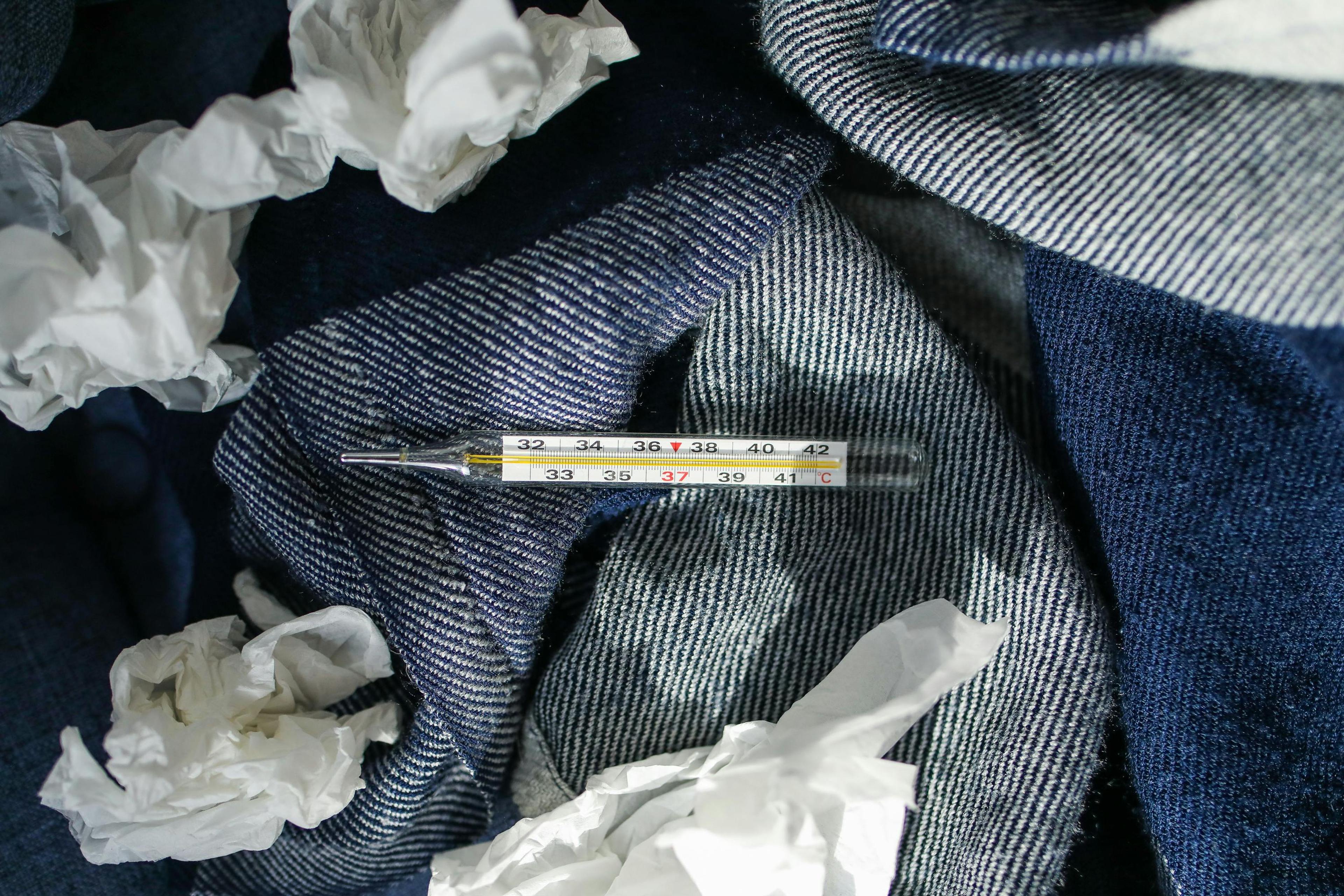What helps with a viral infection?
Who hasn't experienced it - what starts with a runny nose and a few sneezes can quickly develop into malaise, fever and bedriddenness for days on end. Viral infections are lurking around every corner - we provide you with the most important facts and tips on how you can prepare your immune system for the fight against viruses and what really helps with an acute infection.

What is a viral infection?
A viral infection is triggered by viruses - tiny pathogens that can only survive and multiply inside body cells. Unlike bacteria, which can live independently, viruses are dependent on a host. The most common viral infections include the common cold, flu and COVID-19. A viral infection usually leads to respiratory symptoms, but other organ systems can also be affected. Another major problem that has received a lot of attention, especially since the COVID-19 pandemic, is post-infectious fatigue syndrome. This can occur if the immune system reacts too strongly during the viral infection, the cells are damaged and the mitochondria produce less energy.
Viral infections occur mainly in the colder months from fall to spring. Cold weather weakens the mucous membranes and dry, heated air indoors makes it easier for viruses to spread. Crowds of people on buses, trains and in enclosed spaces encourage the spread of the virus.
Cold or flu?
Colds and flu are often confused because the symptoms appear similar. But the differences are striking:
Common cold: Usually caused by rhinoviruses. Symptoms appear slowly and include a runny nose, sore throat and mild fever. The course is usually mild and lasts about a week.
Flu (influenza): Is caused by influenza viruses and can be significantly more severe
What can you do against a viral infection?
If you are already ill, well-known household remedies and medicines from the pharmacy can alleviate the symptoms and speed up the healing process:
Drink tea: chamomile or ginger tea have a calming and anti-inflammatory effect.
Nasal sprays with salt water solution: These help to moisten the nasal mucous membranes and loosen mucus. Look out for natural products without preservatives that you can use over a longer period of time.
Rest and recuperation: The body needs rest to fight the infection. Get enough sleep and avoid strenuous activities.
Hydration: Drinking plenty of water or unsweetened tea helps to detoxify the body and keep the mucous membranes moist.
During an infection, the immune system is working at full speed. It is essential to provide the immune system with the right nutrients during this phase and to support it in the fight against the virus. It is also important to protect and support the cells and mitochondria during the infection in order to prevent post-infectious fatigue syndromes (e.g. Long COVID).
In 2022, 3 doctors published a therapy concept for the treatment of “spike protein-associated diseases”. In this therapy concept, Dr. Ruth Poglitsch, Dr. Josef Mittermaier and Priv. Doz. Veronika Matzi described which micronutrients should be taken in the event of an acute COVID-19 infection. This recommendation can generally be applied to all viral infections. They serve to support the immune system, can reduce the spread of the virus in the body and help to reduce the risk of post-infectious fatigue syndrome.
Recommended micronutrients
In addition to the right home remedies, certain micronutrients also help to give your immune system a boost so that you can get healthy and active again as quickly as possible.
Vitamin D together with vitamin K2 (vitamin D is the “boss of the immune system” and has many positive properties. The combination with K2 is important for calcium metabolism) - - AKG and 5-HMF as a drinking solution
Zinc (shortens the duration and intensity of symptoms and plays a key role in numerous cellular processes) Quercetin (strengthens the immune system and reduces the risk of viral disease. It can curb the multiplication of viruses and limit their spread and also has a general inhibitory effect on various viruses in the body)
Lysine (counteracts the amino acid arginine, which is required for the division and multiplication of viruses. Lysine is also involved in the formation of antibodies).
Melatonin (anti-inflammatory function and protects against viral infections)
Acetylcysteine (important anti-inflammatory effect)
Vitamin C as L-ascorbate-threonate ester (Ester-C) (a special form of vitamin C with high bioavailability and stomach-friendliness. It offers numerous health benefits, including strengthening the immune system and antioxidant effects)
It is important to consume these micronutrients in good quality and in the correct dosage, as some of them have an immunomodulating, antioxidant and anti-inflammatory effect. The recommendation according to the therapy concept would therefore be as follows:
Vitamin D 10,000 - 20,000 IU together with vitamin K2 (100µg) daily
AKG 2.4g and 5-HMF 240mg as a drinking solution
Vitamin C as L-ascorbate-threonate ester (Ester-C) 2 capsules every 2 hours
Zinc 3 x 60mg daily together with
Quercetin 3 x 500mg daily
Lysine 3 x 500-1000mg daily
Acetylcysteine 600mg 3 x daily
Melatonin 20-40mg transdermally (as a cream) throughout the day
This therapy concept was published by doctors in the leading specialist journal for orthomolecular medicine OM & Nutrition issue no. 181.